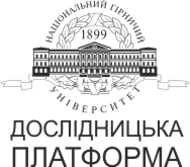№75-9
Distribution of resources in the system of decentralized management
I. Novytskyi1, Y. Shevchenko1
1 Dnipro University of Technology, Dnipro, Ukraine
Coll.res.pap.nat.min.univ. 2023, 75:97-102
https://doi.org/10.33271/crpnmu/75.097
Full text (PDF)
ABSTRACT
Purpose of work is optimization of processes in a decentralized system during resource distribution among consumers in conditions of its scarcity and incomplete a priori information.
Methodology. To achieve the goal, analytical methods were used in combination with methods of simulation modeling of processes that determine the optimal mode of operation of the decentralized system.
Research results. The problem of allocation of a limited resource is a typical problem of operations research and, if its parameters are known, it is solved as a conditional optimization problem. However, in a decentralized system, each of its constituent elements does not have complete a priori information about the parameters of the problem (of the entire system). In such a situation, lack of information, and in the extreme case, a complete lack of a priori information for each of the elements of the decentralized system must be filled with a posteriori information. This requires a coordinated strategy for the behavior of all elements of the system. Algorithms for the behavior of the decentralized system elements are proposed in this work, which provide an optimal solution of the problem through a certain number of management steps, which depends on the amount of initial information.
Scientific novelty. A new algorithm for adaptive tuning of a decentralized system are proposed and investigated, which provides access to the optimal mode of its operation when distributing a limited amount of resources between consumers.
Practical significance. Decentralized systems have a number of advantages compared to traditional management systems of different structures: increased survivability, significant reduction of communication equipment. Besides, in some cases, the use of decentralized systems is the only option. On the other hand, the emergence and development of modern small-sized means of processing information allows technically implementing rather complex computational algorithms for each element of the system. Studying and solving the problems of improving the efficiency of decentralized systems has an obvious practical significance.
Keywords: decentralized system, resource allocation, simulation modeling, adaptive algorithm, a priori information, survivability, mathematical methods.
References
1. Novytskyi, I. V., & Us, S. A. (2017). Suchasna teoriia keruvannia: navch. posib. Dnipro University of Technology. https://ir.nmu.org.ua/handle/123456789/150797
2. Pivnyak, G., Protsenko, S., Stadnik, М., Tkachev, V. (2007). Decentralized management. National Mining University.
3. Lytvyn, V. (2009). Multi-agent decision support systems based on precedents and use adaptive ontologies. Radionics.Informatics. Management, 2(21), 120–126.
4. Konovalenko, О., Brusentsev, V. (2019). Multyahentni systemy upravlinnia ta pidtrymky pryiniattia rishen. Collections of scientific and research papersNational Technical University «Kharkiv polytechnic institute». Seriia: Mashynoznavstvo ta SAPR,1, 18–27.
5. Naumov, L., & Shalyto, A. (2003). Automata Theory for Multi-Agent Systems Implementation. Proceedings of Integration of Knowledge Intensive Multi-Agent Systems. MA, Boston.
6. Kravari, K., & Bassiliades, N. (2015). A Survey of Agent Platforms. Journal of Artificial Societies and Social Simulation, 18(1), 1–18.
7. Novitskyi, I., & Nachovnyi, А. (2011). Decentralized management in tasks of operational resource distribution. Mining electromechanics and automationаl, 87, 66–69. http://ir.nmu.org.ua/handle/123456789/599
8. Skobelev, P., Leitão, P., & Karnouskos, S. (Ed.). (2015). Multi-Agent Systems for Real Time Adaptive Resource Management. Industrial Agents: Emerging Applications of Software Agents in Industry, 207–229.
https://doi.org/10.1016/b978-0-12-800341-1.00012-7




